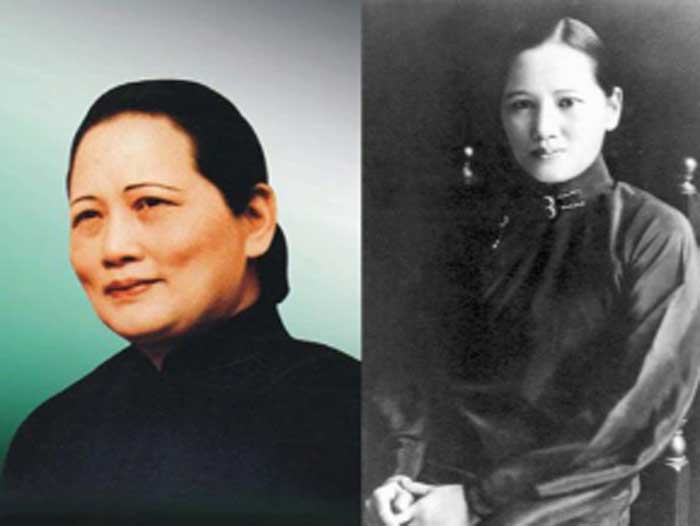A 75-Year Journey of Empowerment and Leadership
Women’s role in China’s development
Mariam Naqvi
People’s Republic of China (PRC) is celebrating its 75th anniversary today on October 1st, 2024, it is essential to acknowledge the profound role women have played in the nation’s extraordinary journey. From the founding of the PRC in 1949 to its current status as a global powerhouse, Chinese women have been pivotal in shaping the country’s social, political, and economic landscape. Once marginalized, they have risen to become trailblazers, leaders, and visionaries, driving China’s rapid transformation.
The Early Years: Laying the Foundations
The Communist Revolution of 1949 heralded a new era for women in China. Under the leadership of Mao Zedong, the slogan “Women hold up half the sky” became a defining principle, embedding gender equality into the fabric of the nation’s identity. The new government’s efforts included enacting the Marriage Law of 1950, which abolished arranged marriages, promoted gender equality in family matters, and gave women the right to choose their own partners-laying the groundwork for a more empowered female population.
Education was another area that saw tremendous growth for women. In the early years of the People’s Republic, access to education expanded, helping to close the gender gap and equip women with the skills necessary for participation in the workforce. Women were encouraged to enter industries previously dominated by men, such as agriculture, manufacturing, and construction, playing a key role in rebuilding China after years of conflict.
Political Leadership: Women in Governance
Women have also risen to prominence in the political sphere over the last 75 years. One of the earliest examples of female leadership came from Soong Ching-ling, a revered figure who co-founded the People’s Republic alongside Mao and served as its Vice President. Her contributions laid the foundation for future generations of women leaders.

Over the decades, female participation in politics has grown, with more women occupying senior government positions. In recent years, figures like Sun Chunlan, one of China’s four vice-premiers, have gained national and international recognition. Sun’s work spans education, public health, and sports, and she played a critical role in managing the COVID-19 pandemic response.
The representation of women in the National People’s Congress (NPC) has also steadily increased. As of the 13th NPC, women accounted for about 25% of the representatives, a significant step forward in a historically male-dominated sphere.
Economic Trailblazers: Women Entrepreneurs and Business Leaders
Women in China have been equally transformative in the economic sector. In the 1980s, as China opened its doors to market reforms under Deng Xiaoping, women seized new opportunities for entrepreneurship and leadership. This period saw the rise of powerful female entrepreneurs like Zhang Yin, who became the world’s richest self-made woman in 2006. Zhang founded Nine Dragons Paper, now the largest paper-recycling company in Asia, showcasing the power of female entrepreneurship in driving the country’s industrial expansion.
More recently, Dong Mingzhu, the chairwoman and president of Gree Electric Appliances, stands as an emblem of women’s success in corporate leadership. Under her direction, Gree became one of the world’s largest air-conditioning manufacturers. Dong’s business acumen, combined with her determination, has earned her a place among the world’s most influential businesswomen.
The growing tech sector has also seen the emergence of women at the helm. Lucy Peng, a founding member of Alibaba, exemplifies the influence women have wielded in the digital economy. As one of the architects behind Ant Financial, now a global leader in fintech, Peng’s work has reshaped China’s financial services landscape and further empowered women by providing access to microloans and entrepreneurial resources.
Social Progress: Driving Cultural Change and Gender Equality
The social advancements for women in China have been equally remarkable. The one-child policy, while controversial, created a unique dynamic where families invested heavily in the education and development of their daughters. As a result, a new generation of highly educated, ambitious women emerged, entering sectors like finance, engineering, and science, which were traditionally male-dominated.
Women’s involvement in academia and research has grown substantially. Tu Youyou, a pharmacologist who discovered artemisinin, a groundbreaking treatment for malaria, became China’s first female Nobel Prize winner in 2015. Her achievement reflects the country’s growing investment in female scientists and researchers, which has bolstered China’s position in global innovation and scientific development.
Women’s organizations and advocacy groups have also played a crucial role in advancing gender equality. Initiatives such as the All-China Women’s Federation have advocated for women’s rights, supporting legal reforms, and providing resources for women in rural areas, where gender inequality has traditionally been more pronounced.
The Path Forward: Women as Agents of Change
As China looks ahead to the next phase of its development, the role of women is poised to become even more significant. The country’s leadership recognizes that gender equality is essential for sustainable growth. Policies promoting women’s participation in high-level decision-making roles in both the public and private sectors are increasingly taking center stage. More Chinese women are entering fields like STEM, finance, and entrepreneurship, contributing to the country’s ambition to become a global innovation leader.
While challenges remain-particularly in the areas of gender pay disparity and work-life balance-the progress made over the last 75 years is undeniable. Women in China today are not only beneficiaries of reform but also active participants and leaders in shaping the nation’s future.
Celebrating 75 Years of Progress
As today China marks 75 years since the founding of the People’s Republic, the contributions of women stand as a testament to the resilience, creativity, and determination that have driven the country’s remarkable transformation. From political leaders to entrepreneurs, scientists to social advocates, Chinese women have consistently broken barriers and redefined their roles in society. Their journey over the past 75 years offers inspiration for future generations, affirming that women will continue to be key players in China’s ongoing rise on the global stage.
In celebrating China’s anniversary, we also celebrate the women who have played-and continue to play-an indispensable role in its progress.






